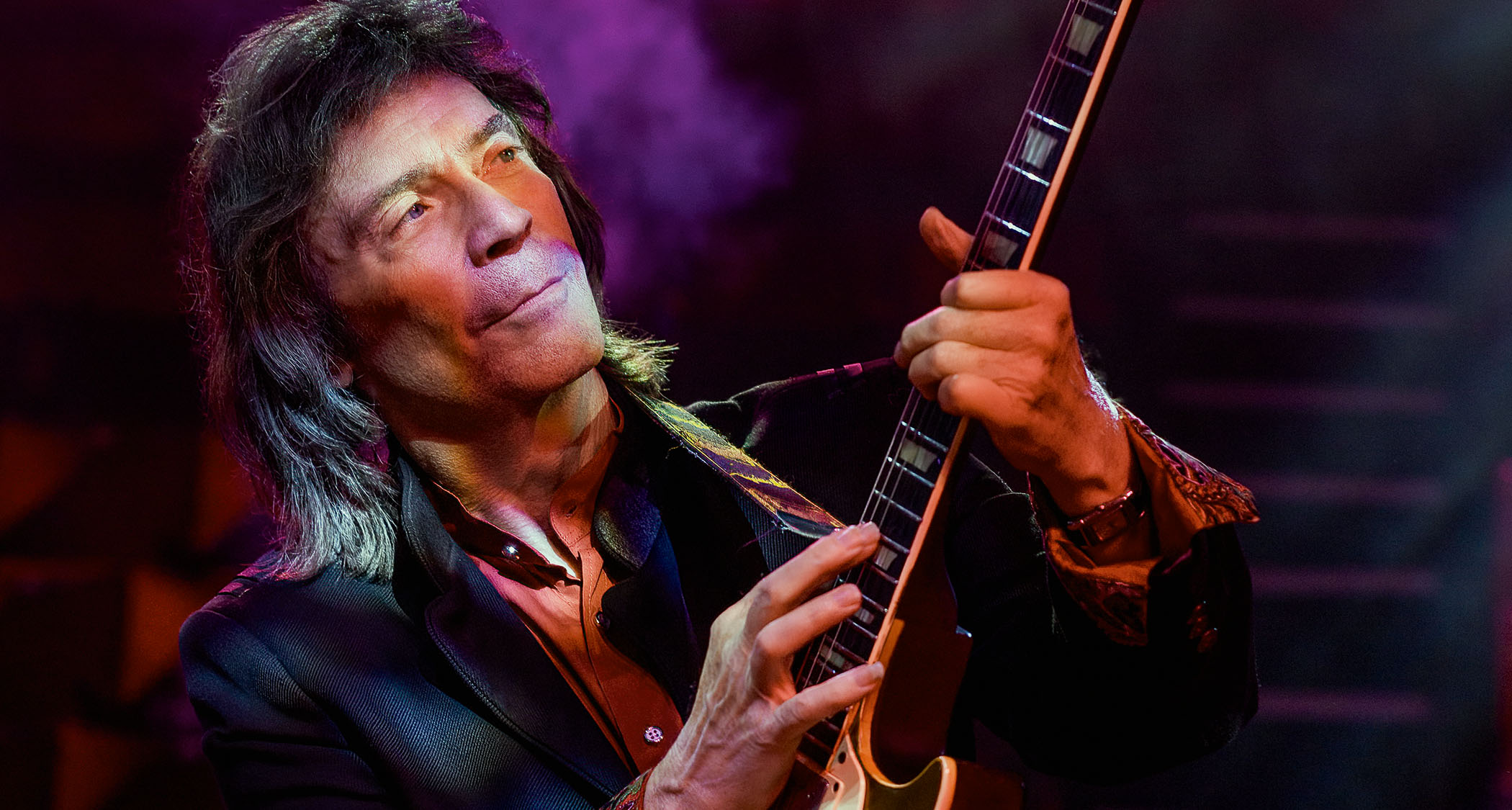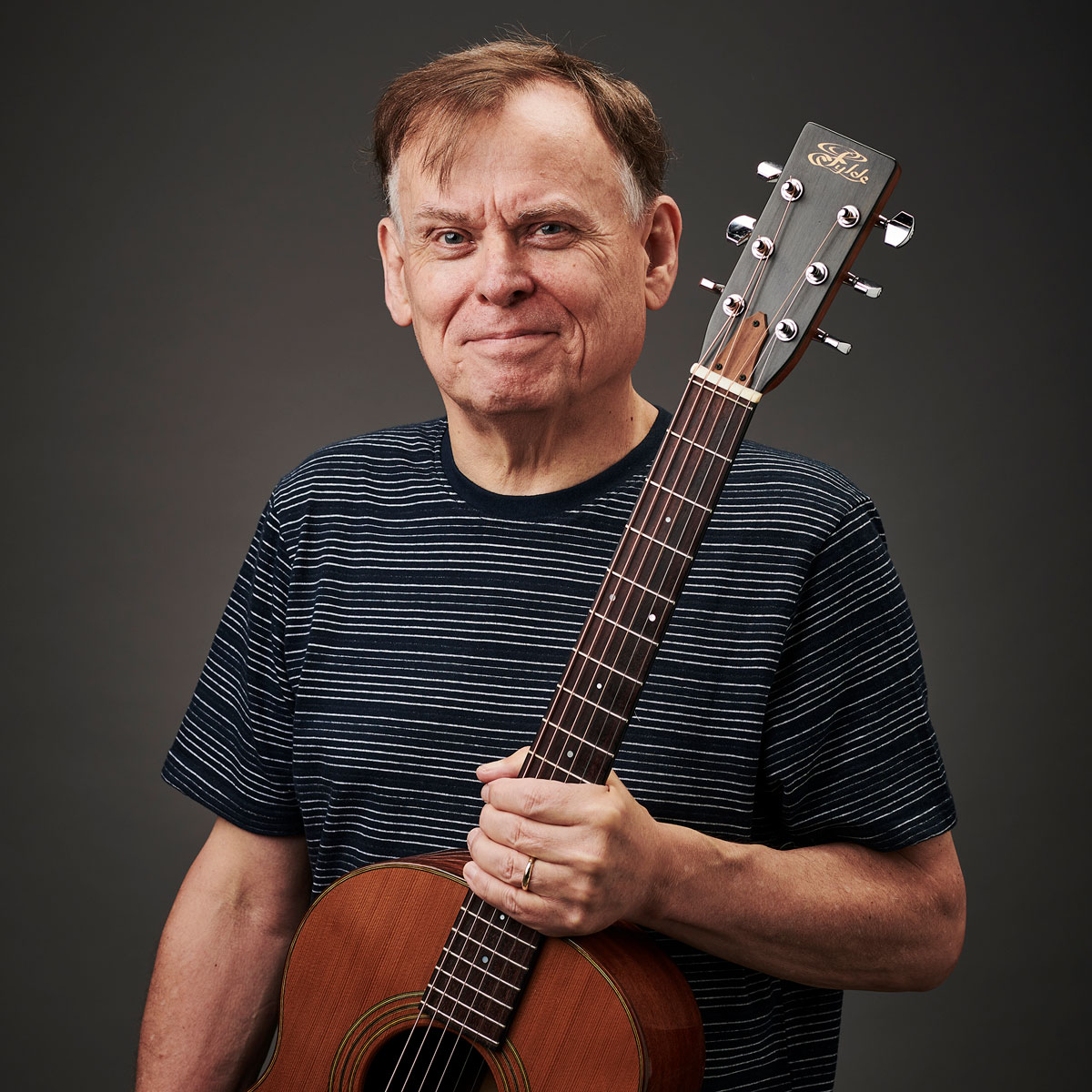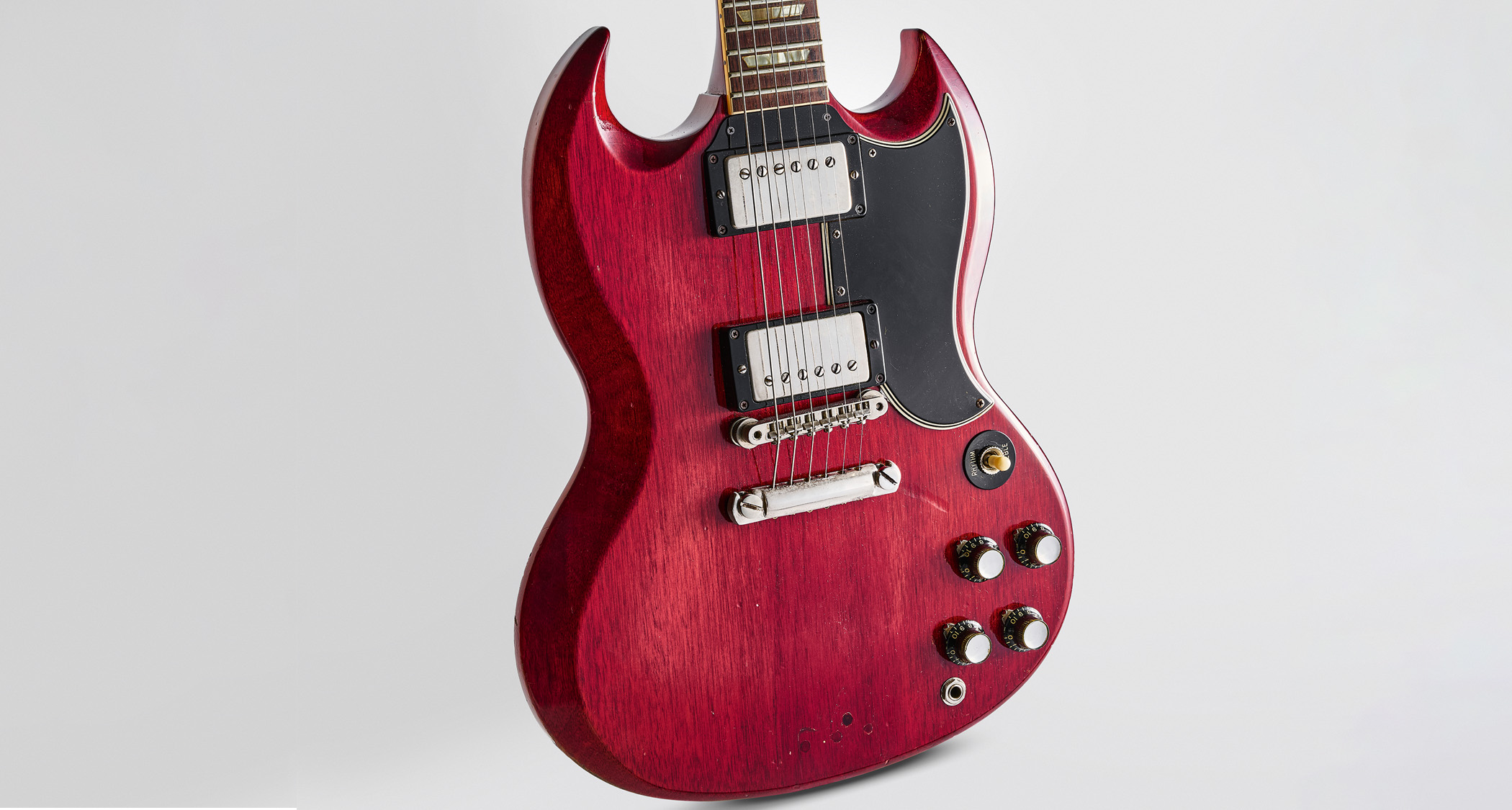“People say, ‘You could afford Buckingham Palace by now if you’d stayed with Genesis.’ But music is its own currency”: Steve Hackett on creative liberation, recording with practice amps and why he used a Brian May Red Special
From underrated Japanese acoustics to the joy of the Sustainer, Hackett discusses the tones and techniques behind new album The Circus And The Nightwhale – and reflects on the ’what-ifs’ of his time with prog greats Genesis

Steve Hackett has been enjoying phenomenal success worldwide with his Genesis Revisited project, but live shows are always peppered with material from a solo repertoire that extends back into the 1970s.
Recent years have seen his albums gain traction in the charts with his signature melodic guitar tone always to the forefront. As he’s continually searching for new themes to explore, the latest album is largely semi-autobiographical, featuring the life and times of a fictional character called Travla.
Heavy riffs and lavish orchestrations are the order of the day hereabouts, and we couldn’t resist the opportunity to find out more about the album’s origins…
Your albums have always had quite a strong narrative to them, but this one in particular, to the extent that you have described it as semi-autobiographical. Could you explain a little bit about the story behind The Circus And The Nightwhale?
“Well, my wife, Jo [Lehmann], had the idea for the title. We had been kicking around the idea of something that was semi-autobiographical so I could draw on the experience of what it was like to be born in 1950, in London, as in People Of The Smoke, the opening track – ‘the smoke’ being a nickname for London.
“Like so many of the things that I work on with her, it took a little bit of time for the penny to drop. She was the one who said to me that people like a story. I resisted that for a while, I thought, ‘Oh, concept albums…’ they were something always heavily criticised by critics at one time. It became very passé.
“But then it became acceptable again and we’ve done various things that are stories within themselves, like Under A Mediterranean Sky [2021], my instrumental album, describing different countries around the Mediterranean.”
All the latest guitar news, interviews, lessons, reviews, deals and more, direct to your inbox!
How did you begin to shape the story?
“Jo suggested Travla as a third person so that we could take it into realms that were perhaps more Pinocchio-esque, or more Homeric, perhaps. The hero’s quest approach. That’s how we work together, things are born out of conversations and then Roger King [keyboards, programming and arrangements], who puts all this stuff together, makes our dreams a reality.
I play guitar, I sing, I try to get involved in the close detail as much as possible. We do computer sketches, then we get humans to play it – that’s how it seems to work
“I play guitar, I sing, I try to get involved in the close detail as much as possible. We do computer sketches, then we get humans to play it – that’s how it seems to work. It’s always been a mystery to me how anything gets finished at all with the amount of time we spend on the road doing shows. We even recorded some stuff at soundchecks because we were challenged for time, so some of this album is recorded live in halls that we were doing concerts in.”
What form did the main recording sessions take for this album?
“I found a unique way of working where I think you get a lot out of yourself and other people if you’re working in so-called ‘downtime’, where you’re not really expecting anything. So anything you get from a situation like that is a plus.
“It was recorded in maybe four or five different batches at home, in this very room, co-ordinating everything and playing guitar here. But I don’t think it’s harmed it at all, you know? Having to wing it seems to have helped it. I wanted things to be pretty brief, as it’s very easy to overstay your welcome with any one particular idea, it seems to me.”

One of the acknowledged millstones of a concept album is that there’s the expectation that it has to be performed in its complete form – something you will have experienced before in Genesis with The Lamb Lies Down On Broadway. Are you going to get a chance to perform this album as a whole?
“That’s a huge challenge. I hadn’t expected that it was going to be so well received. One of the videos has gone viral – the one for People Of The Smoke – and I’m at this point where I’ve only got a certain amount of time on my hands. I’d like to do the whole thing, but at the moment I’m supposed to be celebrating Foxtrot in America, The Lamb Lies Down On Broadway over here – not in its entirety. It’s a real conundrum.
“I would like to think that although it works as a cohesive whole, it should be possible to do some things from it. If I was watching The Beatles and they suddenly went into Being For The Benefit Of Mr Kite!, I’d be on my feet. Things should be able to work in total, and they should be able to work separately.
“I’ve headed towards doing Genesis albums in total; the two that I’ve really gone for have been Foxtrot and Selling England By The Pound from ’72 and ’73. That was when John Lennon said he thought that Genesis were true sons of The Beatles, so as far as I’m concerned that’s the golden era of Genesis to celebrate.”
How much of your own story is wrapped up in the album’s storyline – or are you going to let people draw their own conclusions?
“I have to be a little bit careful because I don’t want to point fingers at people and blame them for my extremely screwed-up state of mind at various points. There was an aspect of claustrophobia that invaded my time with Genesis, and I had to work outside the band. I think if you’re feeling creative and you’ve got that album or that book or that film inside you, you don’t want to let it fester. You’ve got to get it out there.
If you look at it purely in financial terms, you would have said, ‘Yeah, but you could afford Buckingham Palace by now if you’d stayed with the band.’ But on the other hand, music is its own currency
“Genesis was becoming a little bit too much of a closed shop and it was affecting my ability to sleep. I agonised over leaving the band for a good two years and then I thought, ‘No, I’ve got to make a leap of faith at this point in time.’ And there’s no doubt that I made the right decision.
“If you look at it purely in financial terms, you would have said, ‘Yeah, but you could afford Buckingham Palace by now if you’d stayed with the band.’ But on the other hand, music is its own currency. It’s what nourishes you, if you need to do it.”
One of the acknowledged millstones of a concept album is that there’s the expectation that it has to be performed in its complete form – something you will have experienced before in Genesis with The Lamb Lies Down On Broadway. Are you going to get a chance to perform this album as a whole?
“That’s a huge challenge. I hadn’t expected that it was going to be so well received. One of the videos has gone viral – the one for People Of The Smoke – and I’m at this point where I’ve only got a certain amount of time on my hands. I’d like to do the whole thing, but at the moment I’m supposed to be celebrating Foxtrot in America, The Lamb Lies Down On Broadway over here – not in its entirety. It’s a real conundrum.
“I would like to think that although it works as a cohesive whole, it should be possible to do some things from it. If I was watching The Beatles and they suddenly went into Being For The Benefit Of Mr Kite!, I’d be on my feet. Things should be able to work in total, and they should be able to work separately.
“I’ve headed towards doing Genesis albums in total; the two that I’ve really gone for have been Foxtrot and Selling England By The Pound from ’72 and ’73. That was when John Lennon said he thought that Genesis were true sons of The Beatles, so as far as I’m concerned that’s the golden era of Genesis to celebrate.”
Let’s talk a little bit more about the recording process. Obviously, you’ve experienced being in a band, recording together in the studio, but these days it’s far more common to have contributions made remotely, thanks to the internet. Do you have a preference?
When we were making Spectral Mornings, we were partying into the night and there was an album at the end of it!
“There’s no doubt about the camaraderie of a band when everyone is swinging together and there’s virtual telepathy going on. Those moments are irreplaceable and I had that with Genesis; there were certain moments where the music was literally writing itself. That also happened with my own first touring band.
“When we were making Spectral Mornings, we were partying into the night and there was an album at the end of it! Everyone was getting a chance to express themselves and play and sing wonderfully.
“So I’ve seen it from both sides. But I also love the modern way of working where you do some kind of demo, some kind of computer sketch, and then you send it off to someone, and you’re not poring over their shoulder, they’ve got time to absorb it, figure that they can do this and that and nobody has to hear all their bum notes. I just get the finished product from them.”
Were the guitars on the album primarily your Fernandez and Goldtop Gibson Les Paul?
“They’re both in evidence on the album and they produce different sounds. You sacrifice a certain amount of tone control with the Fernandes Sustainer pickup aspect, but it gives you something else – those screaming kettle police car noises and sustain to die for, with no tyranny of volume, because it’s the guitar itself that’s feeding back. So once you’re managing to isolate the notes you can get something absolutely spectacular from it.
“Then on Wherever You Are, the penultimate track, I was using one of Brian May’s guitars that he invented, a Red Special. It was overdriven, but I was using the neck pickup out of phase with the other two, providing this kind of upper harmonic honky quality that you’d normally get from cocked wah.”
There’s some classical guitar on the album, too. What type of nylon-string do you use?
“When we were working on The Lamb Lies Down On Broadway in 1974 I bought a Yairi; it was the loudest guitar in the shop and I could just about afford it. I’ve kept this guitar now for 50 years and I just had the action lowered on it recently, which improved its playability. I use light gauge strings on it – D’Addario Pro-Arté – which probably squeak the least of all the ones I’ve worked with over the years.”
For this I went straight in. No amps were harmed, they’re all virtual models
Did you use guitar amps or amp modellers for the album?
“For this I went straight in. No amps were harmed, they’re all virtual models. I don’t think it’s obvious that I work like that. Live, I use Engl amps and my overdrive is Sansamp. Just for practice, I’ve started using two of those in series; whether that will work live, I don’t know.
“I’m after boosting a little bit more all the time. Then there’s a volume pedal, Whammy pedal… I’ve got a little Peavey practice amp that I use at home and I sometimes record with that. But it’s not the size of the amp, it’s what you’re doing with it.”
- The Circus and the Nightwhale is out now via Inside Out Music.
With over 30 years’ experience writing for guitar magazines, including at one time occupying the role of editor for Guitarist and Guitar Techniques, David is also the best-selling author of a number of guitar books for Sanctuary Publishing, Music Sales, Mel Bay and Hal Leonard. As a player he has performed with blues sax legend Dick Heckstall-Smith, played rock ’n’ roll in Marty Wilde’s band, duetted with Martin Taylor and taken part in charity gigs backing Gary Moore, Bernie Marsden and Robbie McIntosh, among others. An avid composer of acoustic guitar instrumentals, he has released two acclaimed albums, Nocturnal and Arboretum.









